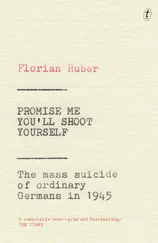Джоанн Гринберг - I Never Promised You a Rose Garden
Здесь есть возможность читать онлайн «Джоанн Гринберг - I Never Promised You a Rose Garden» весь текст электронной книги совершенно бесплатно (целиком полную версию без сокращений). В некоторых случаях можно слушать аудио, скачать через торрент в формате fb2 и присутствует краткое содержание. Год выпуска: 1964, ISBN: 1964, Издательство: Henry Holt and Co., Жанр: Проза, на английском языке. Описание произведения, (предисловие) а так же отзывы посетителей доступны на портале библиотеки ЛибКат.
- Название:I Never Promised You a Rose Garden
- Автор:
- Издательство:Henry Holt and Co.
- Жанр:
- Год:1964
- ISBN:9780312943592
- Рейтинг книги:3 / 5. Голосов: 1
-
Избранное:Добавить в избранное
- Отзывы:
-
Ваша оценка:
- 60
- 1
- 2
- 3
- 4
- 5
I Never Promised You a Rose Garden: краткое содержание, описание и аннотация
Предлагаем к чтению аннотацию, описание, краткое содержание или предисловие (зависит от того, что написал сам автор книги «I Never Promised You a Rose Garden»). Если вы не нашли необходимую информацию о книге — напишите в комментариях, мы постараемся отыскать её.
Chronicles the three-year battle of a mentally ill, but perceptive, teenage girl against a world of her own creation, emphasizing her relationship with the doctor who gave her the ammunition of self-understanding with which to help herself.
I Never Promised You a Rose Garden — читать онлайн бесплатно полную книгу (весь текст) целиком
Ниже представлен текст книги, разбитый по страницам. Система сохранения места последней прочитанной страницы, позволяет с удобством читать онлайн бесплатно книгу «I Never Promised You a Rose Garden», без необходимости каждый раз заново искать на чём Вы остановились. Поставьте закладку, и сможете в любой момент перейти на страницу, на которой закончили чтение.
Интервал:
Закладка:
Even as she had compromised her captors, she had lost the wish for Semblance—to be a picture of belonging at all costs. She knew the costs now; in a tightened, frightened small town where her classmates would be three years younger and light-years distant, she knew that at best such a world would be a no-man’s-land. Even if she no longer belonged to Yr, there would still be the awful alienation from Earth that had, once made her run to otherness in pain day after day. Yr or no, it was too late to join students such as these again, too late for the proms, the cliques, the curlers, and the class pins. She had had quite enough of a “special vocabulary of belonging.”
“I’m nineteen …” she said to the heap of buildings. “It’s too late.” She turned shivering in the Yri wind that blew over all the miles of a real and unreal separation.
“I can’t go back to my merry high-school days again,” she said to the outpatient administrator, “volleyball in the gym and teeth-teeth at the school dances.”
“But unless you have that diploma to show …”
“Non omnia possumus omnes …” she said, and reminded him that it was Virgil, but she knew that what he said was true.
“Why don’t you make a list of all the things you can do?” he said. She knew that it was make-work, “doing something useful,” something Deborah felt was nothing more than juggling dead-end signs. The administrator wanted to get off the hook, he wanted not to be bothered with the world of commerce and livelihood, and Deborah, seeing this, was moved out of sympathy to be dutiful and do what he said. Perhaps she would find hiding in a word some preference, or talent, or something that could really be used. There it was again, the little Maybe, building its compelling heat from a small and vulnerable spark.
She went back to her little table at the rooming house, sat down, and ruled a piece of paper down the middle. On one side she wrote KNOWLEDGE and on the other, POSSIBLE JOB.
KNOWLEDGE / POSSIBLE JOB
1.Ride a bicycle / Rural delivery girl
2.Know all of Hamlet by heart from beginning to end / Tutor of Hamlet to kids who are taking it in school
3.Can wake up from dead sleep in full possession of faculties / Night watchman
4.Have a tremendous vocabulary of obscene words / Language consultant
5.Some Greek / (Not enough)
6.Some Latin / Tutor of Latin for kids who are taking it in school
7.Have potential for callousness / Professional assassin
8.Artist for 10 years / Not genius—not commercially practical
9.Know the components of most forms of mental illness and could act them realistically from seeing the original / Actress (too dangerous)
10.Don’t smoke / Wine taster
She rewrote the list leaving out numbers 4, 5, 7 and 9. She felt a special poignancy at having to leave out “Professional assassin.” She realized that she was too poorly coordinated and clumsy, and professional assassins should be very wiry and graceful. She was so lacking in atumai that she knew her victims would always fall the wrong way, and picturing herself trying to crawl out from beneath the body of a three-hundred-pound former wrestler, she knew that 7 was a lost cause.
The next day she took the list to the administrator, but did not stay to see him read it. Even Anterrabae was embarrassed by the poor showing of his queen and victim, and the Collect was jubilantly self-righteous. She was frightened by the choices that the world offered her. The possible futures stretched before her like the hall down which she was now walking from the administrative offices: a long road with carefully labeled doors every ten feet of the way—all closed.
“Oh, Miss Blau—” a voice called behind her. It was one of the social workers. (What now? she wondered. I have a room, so I don’t need a room-tracker, unless there’s one to rescind the other’s trackings.) “Dr. Oster was talking to me about you going to the high school.” (There it was again, the lock-step-lock of the world; they had reassigned her to her place under the juggernaut.) Redness seethed upward from the tumor until she was hot to the eyes with its pain.
“I should have thought of it right away,” the social worker was saying. “There’s a place in the city that might be able to prepare you for them.”
“For what?” Deborah said.
“For the examinations.”
“What examinations?”
“Why, the high-school equivalency. As I was saying, it seems the practical way …” The social worker was looking at her quizzically. Deborah wanted to tell her that it is not possible to hear through a red wash, and that the relief of her news, which had turned her face a chalk white, was also giving her “the bends” from the change in pressure.
“I wouldn’t have to go to the town high school?”
“No, as I was just saying, there is a tutorial school in the city—”
“I could choose, then?”
“You could talk to them about the possibilities—”
“Does one call for an appointment?”
“Well, you are still a ward of …”
“Could you call them for an appointment?”
“Yes, I could do that.”
“And will you tell me what they say?”
The social worker said that she would, and Deborah sat down and watched her walk away. The pain in the red wash was fading, but the panic was not withdrawing from her. Listen to your heart, Anterrabae said, falling beside her. She heard it slamming like a latchless door in the wind.
What is it? What is it? she called to Yr. I was real, just here, just before! Her vision was ragged and distorted and the words came in an odd Yri form, as if even Yri had been coded for secrecy. Why? Why is this happening?
Her question broke the Earth’s silence, and she sensed people near, perhaps Dr. Oster coming out of his office. But her hearing was distorted like her vision, and when she stumbled into someone, she cried, “The senses are not discrete!”
“Is she going to be violent ?” (or something like that, came in bored annoyance from the blur). Deborah began to answer that violence to a volcano is natural law, but she could no longer communicate at all. Flanked and followed by the handed blurs, she entered the steel patient-elevator and was carried up to D ward—the beginning all over again.
When she cleared—again, all over again, wrapped and restrained yet again—she laughed down at herself looking the length of the case.
“ Now I know, you sudden, falling calendars. Now I know, Lactamaeon, you sad god. Now I know why Carla and Doris Rivera were so damned exhausted! ” Her throat seemed to be breaking with the hard, hurting laugh.
After a while Quentin Dobshansky came in to take her pulse.
“Hi …” he said, trying to figure out if he should be cheerful or grave, “… is the pack helping?”
“Well, I can see again,” she said, “and hear, and talk.” She looked at him. “Are you still a friend of mine?”
“Well, sure!” he said uncomfortably.
“Then don’t do anything to your face, Quentin. Just leave it hanging there.”
He let his face go, and it fell back into disappointment. “Just … well, I liked to think of you being outside and starting along, that’s all.”
He was beginning to feel an ache of anxiety because this person toward whom he felt kindly was a crazy person (even though the doctors had told him to call them mentally ill) and he could make her crazier if he said the wrong things. The doctors and all the books he had been reading told him not to be too definite, not to argue or show strong feelings, but to be cheerful and helpful. In spite of these instructions, he knew that he could move her, and this made him try, and the trying made him feel something for her, and his success at this feeling made her a human being to him. She was homely and straggle-haired, but he had been laughed at for his looks, too; and he had been defeated once as she seemed to be now. He had been in an accident which had left him lying on a road all broken, his father beside him. The rescuers had taken him to the hospital tied up in a blanket, as she was tied up now, and he remembered that trip. Before the pain there had been something worse: the awful feeling of being crushed to a pulp—body and soul. It had whispered to him over and over with the turning of the wheel rims: stove-in and broke, stove-in and broke. Of the later pain he was curiously proud. His father’s death left a raw, clean sorrow; the broken ribs made each breath-in-breath-out a kick in the face of death, a hurt of being alive. Now he looked at Deborah and heard his mind go again around the rims of the wheels, stove-in and broke, stove-in and broke. It must be what she was feeling now.
Читать дальшеИнтервал:
Закладка:
Похожие книги на «I Never Promised You a Rose Garden»
Представляем Вашему вниманию похожие книги на «I Never Promised You a Rose Garden» списком для выбора. Мы отобрали схожую по названию и смыслу литературу в надежде предоставить читателям больше вариантов отыскать новые, интересные, ещё непрочитанные произведения.
Обсуждение, отзывы о книге «I Never Promised You a Rose Garden» и просто собственные мнения читателей. Оставьте ваши комментарии, напишите, что Вы думаете о произведении, его смысле или главных героях. Укажите что конкретно понравилось, а что нет, и почему Вы так считаете.












